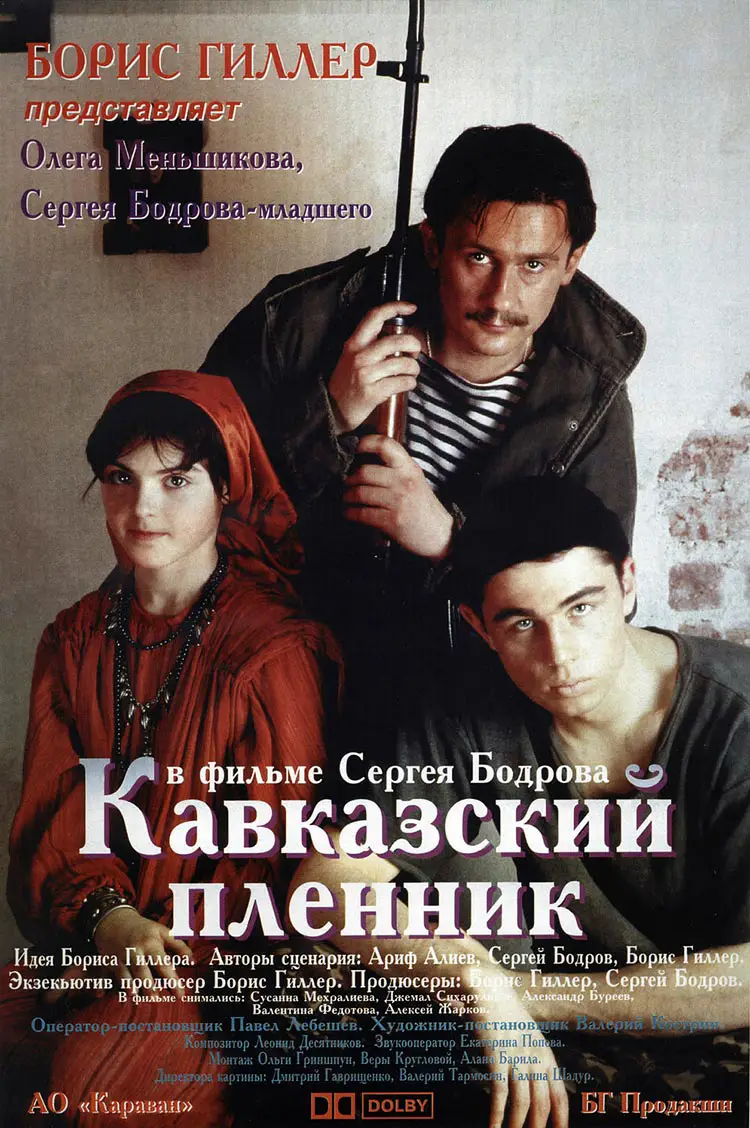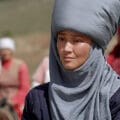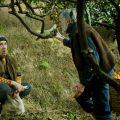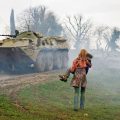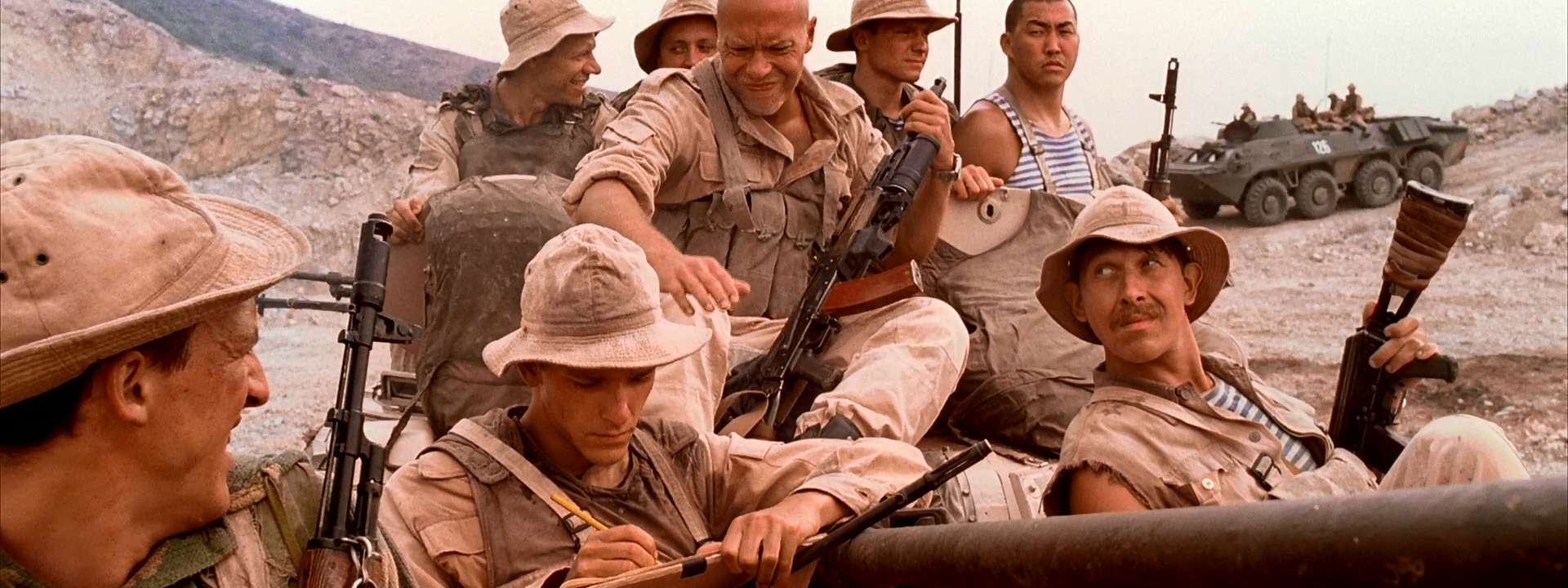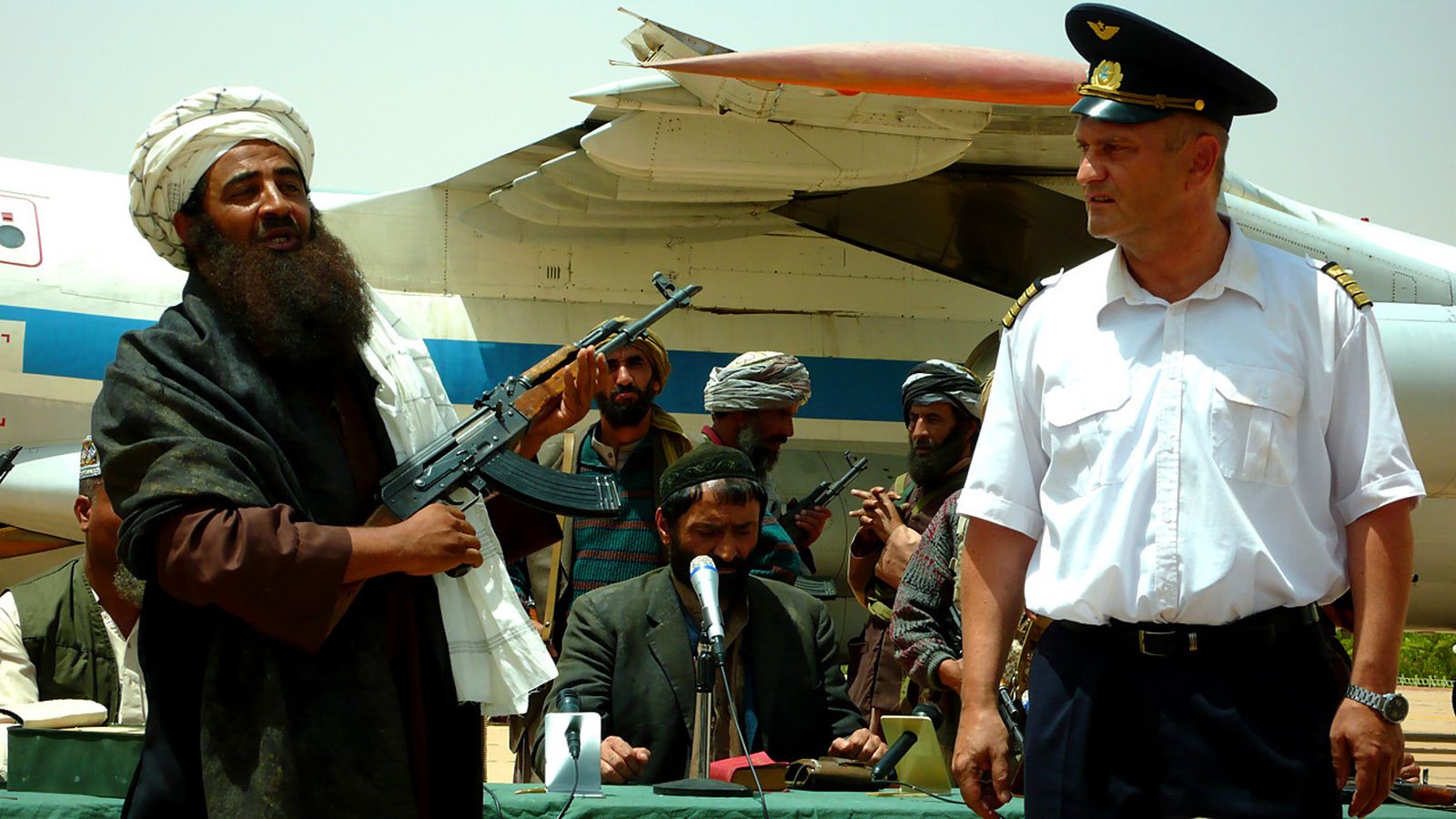Prisoner of the Mountains (Кавказский пленник) is a 1996 film adaptation of Leo Tolstoy’s 1872 war novella “Prisoner of the Caucasus.” Directed by Sergei Bodrov (Сергей Бодров) and starring Oleg Menshikov (Олег Меньшиков), Sergei Bodrov, Jr. (Сергей Сергеевич Бодров), Dzhemal Sikharulidze (Джемал Сихарулидзе), and Susanna Mekhralieva (Сусанна Мехралиева), the film was nominated for an Academy Award and a Golden Globe Award for Best Foreign Language Film and received rave critic reviews.
Prisoner of the Mountains illustrates both the conflict between traditional Chechen and Russian culture and the futility of war. The film takes place roughly during the First Chechen War (1994-6), and follows the story of Russian soldiers Sasha and Vanya, one battle-seasoned and the other barely into his boots, who are taken prisoner by rebels in the Caucasus mountains. Kept alive because village elder Abdul Murat hopes to trade them for his captured son, the prisoners cope in very different ways: while Sasha hatches an escape plan, Vanya falls in love with his captor’s daughter, Dina. The two prisoners eventually escape, only to be recaptured.
Sasha is executed on the spot, but Vanya returns to camp. Elder Abdul Murat receives word that his own son died while trying to escape, and is left with no choice but to execute Vanya the following day. Although Dina begs him for mercy, Murat walks his prisoner to a nearby hill. The Elder stops, but tells Vanya to keep walking. Prepared to die, Vanya is surprised when Murat discharges his weapon into the air, turns around and walks home. As Vanya crosses a nearby field, five Russian helicopters fly towards the village. He screams for them to stop, but they continue on to bomb the village.
The 1996 trailer (in English):


